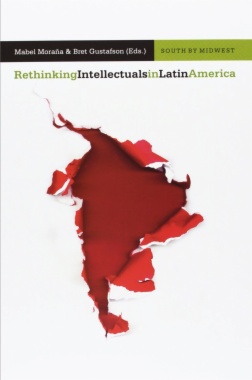An interdisciplinary tour de force that examines past and present to consider how new forms of knowledge production, epistemic plurality, and intellectual and political movements are bringing sweeping change today.
- Cover
- Title page
- Copyright page
- Contents
- Introduction
- Rethinking intellectuals in Latin America: questions and problems. Mabel Moraña
- I. Intellectual roots in Latin America
- Intellectuals and mestizaje: Inca Garcilaso, Blas Valera, and the organic function of colonial letrados. José Antonio Mazzotti
- Black, famous, and out of place: an alternative intellectual in early nineteenth-century Montevideo. William G. Acree, Jr.
- Triumph of the will: the annihilation of Ariel in Manuel Gálvez’s Calibán. Gonzalo Aguiar
- II. National Cultures and the Challenges of Intellectual Work
- The professor and the worker: using Brazil to better understand Latin America’s plural left. John D. French
- Cosmopolitan theory and anthropological practice in Brazil. Jan Hoffman French
- Poststructuralism in the periphery: Nelly Richard’s intellectual transpositions. Ana del Sarto
- Plata Quemada: banditry, neoliberalism and the dilemma of literature at the end of the twentieth century. Juan Pablo Dabove
- Intellectuals in Cuba: facing a future that is already present. Arturo Arango
- III. Alternative Epistemologies and Political Agendas
- Political- epistemic insurgency, social movements and the refounding of the State. Catherine Walsh
- Maya daykeepers and the politics of sacred space. Ixq’anil, Judith M. Maxwell
- Maya Knowledges. Ajpub’ Pablo García Ixmatá
- The communal and the decolonial. Walter Mignolo
- IV. Global Networks and Transnational Flows
- Social sciences and the English language. Renato Ortiz
- Activist intellectuals in a wired world. George Yúdice
- Global realignments and the geopolitics of hispanism. Abril Trigo
- Postscript
- Pluralism, articulation, containment: knowledge politics across the Americas. Bret Gustafson
- About the contributors
- Index

